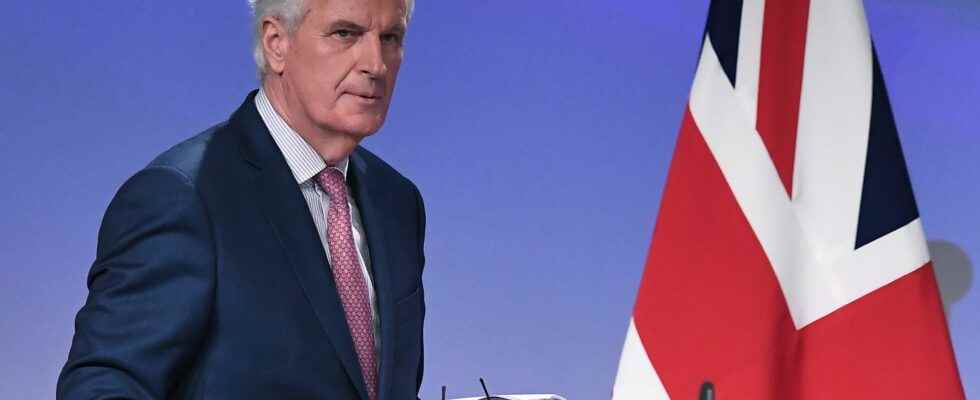Michel Barnier has just returned from London where he took part in a symposium on “the future of the United Kingdom after Brexit” organized by the think tank Chatham House. He took the opportunity to tour television and radio sets. Since 2017, the British media have been tearing up the analyzes of the chief Brexit negotiator, a figure as admired as he is hated by the tabloids across the Channel. Interview, as the European Union and the United Kingdom are on the verge of agreeing on a key point of disagreement, the Northern Irish question.
L’Express: How is the Franco-British relationship doing?
Michael Barnier: It is carried out like all the bilateral relations that the United Kingdom maintains with one of its European neighbors. Like suspended. Despite the time that has elapsed since the June 2016 referendum, Brexit colors not only the national debate, but also its external relations. And it seems that it is regret that dominates across the Channel.
But we must look ahead and rebuild the future together. For that, obviously, you have to finish settling the divorce. Otherwise, impossible to turn the page. Efforts made by Prime Minister Rishi Sunak to improve with the EU the Northern Irish protocol (which aims to avoid the return of a physical border between Ireland and Northern Ireland while ensuring the control of goods) are going in the right direction. He will still have to get it approved by the British Parliament. Brexiteers in his camp could have a nasty surprise in store for him. Boris Johnson is even said to be lying in ambush.
What were your relations with the various British Prime Ministers?
Theresa May was a stateswoman, respected and courageous. THE deal that we had negotiated with it in 2018 and which left the United Kingdom in the Customs Union for a time was in the interest of the British. But she was unfortunately unable to get it voted on in Parliament. Then, with Boris Johnson, we were treated to a baroque personality of great cynicism. When Johnson announced he would not enforce the agreement he had just signed, trust was shattered. And then there was the affair of the Australian submarines and Franco-British bilateral confidence was even worse for it.
Do you have a particular image of your relations with the British during those years?
I remember one meeting in particular. The populist Nigel Farage had asked to see me during the negotiations. I receive it. At one point in our conversation, I show him the photo of the red bus, this famous campaign bus of the Brexiteers on which it was written that if the country left the EU, the British health service would recover 350 million pounds sterling by week. I asked him why they had knowingly spread this lie. He laughed: “I had told Boris not to say such a thing.” I then asked him how he saw post-Brexit. “With Brexit, the EU will no longer exist.” This is a sign that the Brexiteers really wanted to implode the EU from within. Suffice to say that they did not succeed.
Could the arrival of a Labor government with Keir Starmer improve Franco-British relations and more broadly the United Kingdom’s relations with all its European neighbours?
It’s up to the British to decide. All that can be said is that the United Kingdom’s external relations have been living to the rhythm of the internal convulsions of the Conservative Party and have done so since at least 2015. For my part, I met Keir Starmer and the Minister Foreign Affairs of his shadow cabinet, David Lammy. Both are careful not to mention Brexit, but they talk about rebuilding good relations with the Europeans, especially in economic terms. They must understand that they will not be able to take advantage of the single market without respecting its rules. However, all kinds of cooperation models are possible, such as the Norwegian model. The door will always remain open for the return of our British friends.
